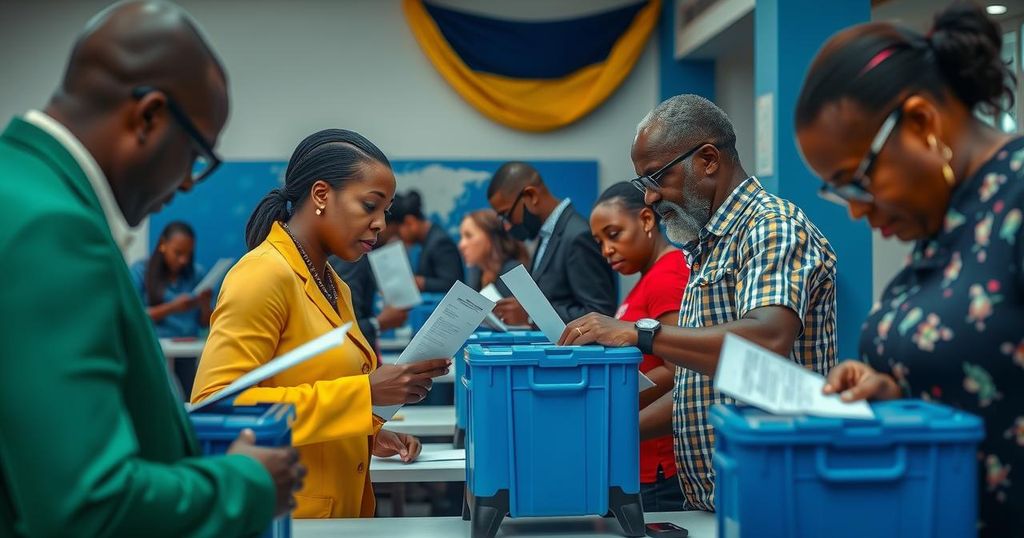Gabon is voting on a referendum for a new constitution intended to promote democratic governance after last year’s military coup that overthrew President Ali Bongo Ondimba. The proposed changes include presidential term limits and measures to prevent dynastic rule. General Brice Oligui Nguema, the interim leader, is urging voters to support the initiative as a step towards political reform, though some critics remain skeptical about the military’s genuine intentions.
Gabon is conducting a referendum on the adoption of a new constitution, a significant step towards reinstating democratic governance following the military coup that ousted President Ali Bongo Ondimba last year. Approximately 860,000 registered voters are anticipated to participate in this critical vote. The proposed constitution seeks to establish presidential term limits, prevent inherited political power, and eliminate the role of prime minister, alongside reaffirming French as the national working language.
Transitional President General Brice Oligui Nguema, who orchestrated the coup, has called upon citizens to support the draft charter, emphasizing that it represents a commitment to focused reform. Nguema has indicated intentions to return power to civilians after a transitional period of two years while expressing his aspirations for the upcoming presidential elections in August 2025.
This referendum arises amidst a backdrop of political upheaval, as Bongo was deposed shortly after being re-elected in a heavily disputed election. The draft aims to introduce crucial changes, including setting presidential terms at seven years and prohibiting family succession in the presidency. However, critics argue that it has been designed to ensure Nguema’s continued grip on power, potentially establishing a new authoritarian regime. Voting commenced at multiple polling locations across the capital, Libreville, with a total of 2,835 polling stations scheduled to remain open until 6 PM today. The constitutional court will ultimately announce the results.
The current political environment in Gabon is characterized by its shift from a longstanding dictatorship to a potential democratic framework. Following the military coup that ended more than five decades of rule by the Bongo family, the transitional government is seeking to consolidate power while introducing constitutional reforms. The proposed changes are significant, given the country’s historical context of dynastic governance and political instability. Moreover, Gabon’s oil wealth underscores substantial socio-economic disparities, highlighting the necessity for reforms to address underlying issues such as high youth unemployment.
The referendum in Gabon represents a pivotal moment in the country’s political landscape, potentially shaping its democratic future following years of autocratic rule. While the transitional government advocates for the new constitution as a means towards political reform and civilian governance, opposition voices raise concerns about the preservation of power within a military-dominated structure. The outcome of the vote is thus of great importance, as it will signal not only the immediate future of Gabon’s governance but also its broader aspirations for democracy and political participation.
Original Source: www.aljazeera.com






